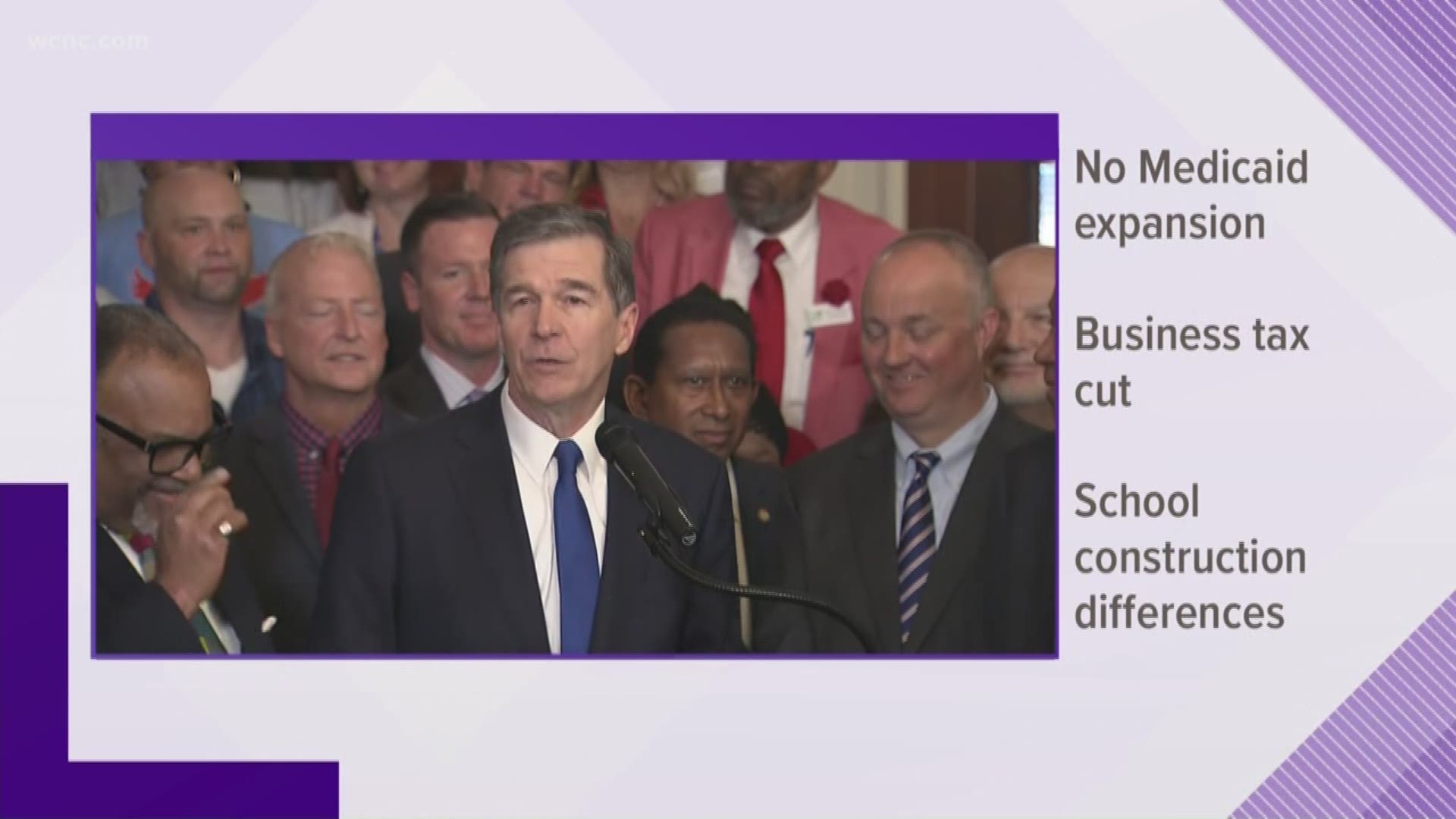RALEIGH, N.C. — North Carolina Gov. Roy Cooper on Friday vetoed the Republican-drawn state budget that passed a day earlier, likely setting up tough negotiations with GOP leaders over the future of Medicaid expansion, school construction, and tax cuts.
Cooper vetoed the measure a few hours after explaining his decision to do so at an Executive Mansion news conference attended by supporters. The House and Senate gave final approval to its two-year spending plan on Thursday.
"I'm vetoing this budget because it fails in many ways," Cooper said at the news conference. "This budget is an astonishing failure of common sense and common decency."
This will be the third time in as many years as governor that Cooper has vetoed what's annually the most important piece of legislation. His previous two vetoes were overridden. But he now sits in a stronger position because Democratic seat gains in the House and Senate have eroded the Republicans' once veto-proof majorities.
Republicans will attempt to override him after the July 4 weekend, their but success appears unlikely given only a few Democrats in the House joined with the GOP in this week's votes for the actual budget. Even Democratic senators who voted for the budget this week because it contained provisions they favored were in attendance Friday to stand with Cooper.
Cooper blasted Republican leaders for failing to engage in real budget discussions during the past few weeks "because they have been so intent on trying to get enough votes to override my veto."
"And so now can we finally get through with a negotiating sham, and let's start real negotiations on this budget," Cooper said, with House Minority Leader Darren Jackson and Senate Minority Leader Dan Blue at his side. Cooper said he'll provide a detailed counteroffer to the legislative budget the week of July 8.
After Cooper's announcement, Senate leader Phil Berger said it was the governor who never engaged in real negotiations. The Rockingham County Republican handed out a "compromise worksheet" he said he provided the governor when he and House Speaker Tim Moore met with him last week, but Cooper didn't respond to it.
"It's clear he never provided one because he always intended to veto the budget over Medicaid expansion," Berger told reporters. "We didn't need to go past this year's budget deadline, but the governor has made sure that we will."
The governor said he doesn't like corporate tax cuts in the budget and wants a school and infrastructure bond package instead of the pay-as-you-go proposal in the final measure. The focus of his unhappiness remains on the absence of Medicaid expansion, which he said would inject money into rural hospitals, create jobs and save lives of people lacking insurance.
"Many are dying because North Carolina has yet to say an important word: Yes. Yes, we will accept Medicaid expansion," Cooper said.
A new report released this week from George Washington University researchers estimates expansion under the federal health care law would provide Medicaid coverage to 634,000 low-income people, while another recent report said the ranks of the uninsured would fall by 365,000.
Berger strongly opposes expansion, saying the federal government can't be trusted to keep paying 90 percent of the cost, and that working people not already covered by Medicaid can get insurance through the health care exchange. This week's floor debate on the budget indicates Moore and House Republicans are more willing to consider a form of expansion.
While the new fiscal year begins Monday, state law directs that North Carolina government continue to operate at current-year spending levels without a new budget in place. That still means delays in items like spending for teacher and state employee raises and to reduce the backlog of untested sexual assaults kits in police departments, Berger said.
Cooper, a former legislator, said pay raises usually become retroactive to the start of the fiscal year, and that he wasn't going to support a bad budget just to get it enacted on time.

